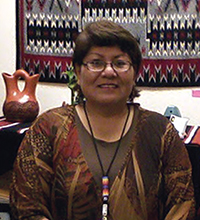 Why did you choose your specific health professional career?
Why did you choose your specific health professional career?
During my first year in college while trying to figure out what I wanted to major in, I decided to go home one weekend and caught a ride with our hometown Community Health Representative (CHR). On the drive home, I asked her what type of healthcare profession she thought our community needed and she responded, “A social worker.” I thought to myself, “What in the world is a social worker and what do they do?” Out of curiosity, I went back to school and researched what a social worker did. I found that social workers can be administrators, planners, and policymakers, who develop and implement programs to address issues such as child abuse, homelessness, substance abuse, poverty, and violence. I thought, “Wow, I can make a difference in someone’s life and improve lives of others.” All I needed were some mentors like Marge and Dan Edwards from University of Utah who got me through the social work program, and I did it! Here I am today, making a difference in lives of those around me.
What experiences did you have to make sure this profession was right for you?
I had to do a certain amount of work at several places to complete my practicum. One place was the University of Utah Hospital inpatient units for orthopedics, surgery, oncology, and the psychiatric (open/closed) units. I also had the opportunity to complete two practicum placements for my undergraduate and graduate training in my hometown clinic, Kayenta Health Center, in the mental health and social services departments.
Describe any obstacles or barriers to success that you encountered along your health professional career path. How did you overcome them?
Social work, while satisfying, can be challenging because you are dealing with a culturally diverse clientele and “at-risk” populations who are overcoming economic and social welfare challenges. But when all involved agencies act seamlessly to help a client or patient, barriers can be broken to help someone else succeed.
What do you do in your current job?
I am the new supervisor for the Social Services Department but not a stranger to supervising social workers. I have had excellent training from former supervisors, psychiatrists, psychologists and social workers to prepare me for this job.
What advice do you have for American Indian/Alaska Native students who are interested in health careers?
In a health care career, you have many choices of becoming whatever you want to be, but I would advise our people that we currently need Native American health professionals in our own healthcare facilities throughout the nation. I see we have more of our people joining the healthcare professions, but we need more entering the social work field. Start early, find a mentor, and hang in there but never give up!
What would you like to see for your tribe’s future?
I hope to see more Native American people pursuing health care careers.
Do you practice traditional medicine? If you do, then how does traditional medicine interact with conventional medicine?
Personally, I don’t practice traditional medicine, but I do come from a family that practices traditional medicine as a career. I do have some knowledge and understanding of it since I grew up with it. I can say it’s been helpful in knowing something about my culture and the practice of traditional medicine, because some of my Navajo patients/clients have benefited from using both traditional medicine and conventional medicine.

